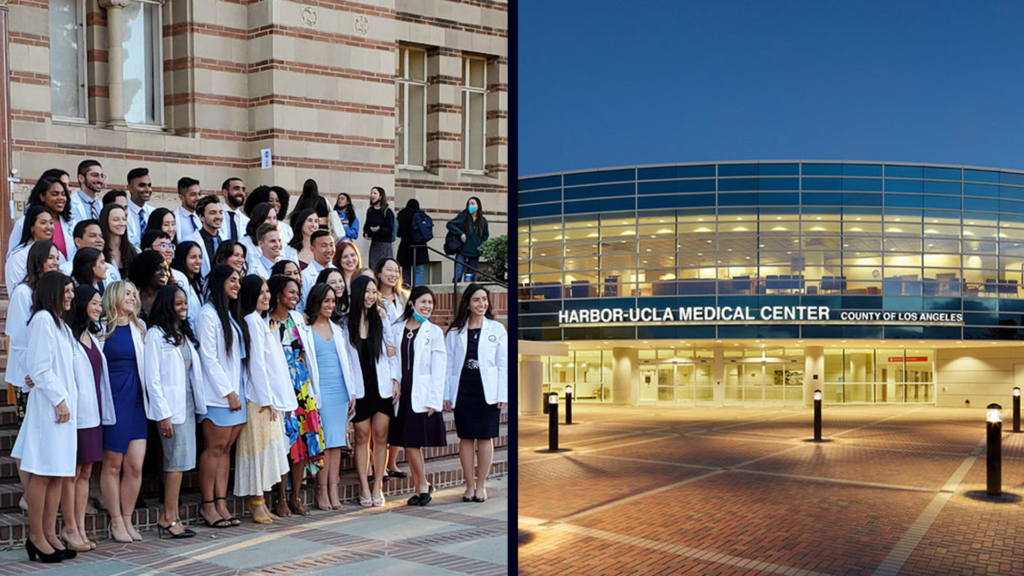Why UCLA’s Medical School Is Failing Due To Lack Of Meritocracy
The recent revelations about UCLA’s medical school underscore a troubling trend in American education and employment: the shift away from meritocracy. As a staunch advocate for merit-based systems, I find the situation at UCLA particularly alarming. It serves as a cautionary tale of what happens when meritocracy is sidelined in favor of other considerations.
The Core Issue: A Departure from Meritocracy
At its essence, meritocracy is about recognizing and rewarding individuals based on their abilities, efforts, and achievements. It is the foundation upon which successful educational and professional systems are built. Meritocracy ensures that the most qualified individuals rise to the top, driving innovation and excellence.
UCLA’s medical school, however, has deviated from this principle. Reports suggest that the admissions process has increasingly prioritized factors other than academic merit, leading to a decline in the school’s overall performance. This shift not only undermines the institution’s credibility but also jeopardizes the future of the medical professionals it produces.
The Consequences of Neglecting Merit
- Erosion of Academic Standards: UCLA’s medical school has seen a significant drop in its academic standards. Reports indicate that nearly half of the students are failing basic competency exams, which is a stark contrast to the national failure rate of only 5% on similar exams. This is largely attributed to the school’s aggressive diversity policies, which have prioritized diversity over merit in admissions decisions (The Publica).
- Impact on Students: Students admitted through non-merit-based criteria often struggle to meet the rigorous demands of medical education. For instance, some students were unable to identify major arteries during clinical exams, a basic competency expected of medical students (The College Fix). Such gaps in fundamental knowledge not only affect their academic journey but also compromise their ability to provide quality care as future healthcare professionals.
- Reputation and Ranking: UCLA’s medical school has experienced a dramatic decline in its national ranking, falling from 6th to 18th place in U.S. News & World Report’s rankings for medical research (Media Research Center). This decline is closely linked to the school’s admission practices, which have shifted away from traditional merit-based criteria.
- Future of Healthcare: The ramifications of this decline extend beyond academia. Medical schools are responsible for training the next generation of healthcare professionals. If these professionals are not selected and trained based on merit, the quality of healthcare they provide may be compromised. Patients expect and deserve competent, well-trained doctors, and meritocracy is essential in ensuring this standard is met.
The Importance of Diversity and Merit
It’s important to clarify that advocating for meritocracy does not mean disregarding diversity. A diverse educational environment enriches learning experiences and prepares students for a globalized world. However, diversity should complement meritocracy, not replace it. Institutions must find a balance where diversity is achieved through inclusive outreach and support, without compromising on academic standards.
Lessons from UCLA’s Experience
The situation at UCLA’s medical school offers valuable lessons for educational institutions across the country.
Schools must reaffirm their commitment to merit-based admissions and hiring practices. This involves setting clear, objective criteria for selection and ensuring that these standards are consistently upheld.
To achieve diversity within a meritocratic framework, institutions should invest in support systems that help underrepresented students meet academic standards. This includes mentorship programs, academic resources, and outreach initiatives that level the playing field.
Institutions must be transparent about their admissions processes and the criteria used for selection. This transparency builds trust with stakeholders and ensures accountability.
Regular evaluations of admissions policies and academic outcomes can help institutions identify areas for improvement. By continuously refining their approach, schools can ensure they remain true to their mission of excellence.
A Call to Action
As we reflect on UCLA’s experience, it’s clear that the path forward lies in recommitting to the principles of meritocracy. Educational institutions must prioritize academic excellence while embracing diversity in a way that enhances, rather than undermines, the quality of education. By doing so, they will not only uphold their own standards but also contribute positively to the broader societal good.
In conclusion, the story of UCLA’s medical school serves as a reminder of the critical importance of meritocracy in education and the workplace. It is time for America to return to a system that recognizes and rewards true merit, ensuring a brighter future for all.
Dr. Shaan Patel, MD, MBA is the Founder & CEO of Prep Expert (winner of a Shark Tank deal with Mark Cuban), a #1 bestselling author, and a board-certified dermatologist.
Written by Dr. Shaan Patel MD MBA
Prep Expert Founder & CEO
Shark Tank Winner, Perfect SAT Scorer, Dermatologist, & #1 Bestselling AuthorMore from Dr. Shaan Patel MD MBA

Ivy League Applications: What Sets A Student Apart
Every year, tens of thousands of students apply to Ivy League schools. Only a small fraction receive an offer of…

The Student Loan Rules Just Changed—And Most Families Aren’t Ready
By Dr. Shaan Patel, CEO & Founder of Prep Expert® Student loans have always been complicated. But starting in…

Confidence Is the Hidden Score Booster No One Talks About
Most students think SAT® and ACT® success comes down to knowing more math formulas or grammar rules. That’s only half…
